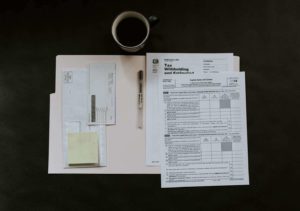When you pay taxes, there’s a good chance you will receive something back from the government. Over 100 million taxpayers received tax refunds for their 2021 returns. While that’s no guarantee, and the exact refund amount you receive depends on your tax situation, it happens to many people. However, some people receive their tax refund sooner than others. So, if you happen to receive a tax refund, how long would it take? Understanding how the Internal Revenue Service (IRS) processes tax refunds can give you an idea of what to expect. Capitalizing on credits like the Earned Income Tax Credit and the Additional Child Tax Credit can also make you more likely to receive a refund. You will also learn a few strategies that can help you get your tax refund sooner.
The IRS and Tax Refunds
The IRS offers many tax refunds because of the way filing taxes work. Many people overpay for their taxes or have too much of their money withheld from their W-2 payments. Overpaying is more common among self-employed workers, while tax withholding typically applies to employees.
While consumers will be happy with any additional dollar that arrives in their bank account or via a paper check, this isn’t free money. Tax refunds are the money you rightfully deserve but end up receiving later than you should have. Refunds are based on how much you pay and the information that shows up on your income tax return. Still, it’s better than not getting a small refund from the IRS. You can use the money in any way you desire.
The Tax Refund Process
The tax refund process depends on how you file your taxes. You can get help from a professional, use online tax software, or mail a completed Form 1040 or 1040-SR. However, completing a form yourself and mailing it to the IRS is not recommended due to the risk of making an error on the tax form.
The refund process starts on the day your taxes get filed. The IRS looks at your income taxes and compares them with how much you paid in taxes. People who overpay will end up with refunds. The amount of time it takes for a refund to show up in your bank account or through another designated method depends on how you file your taxes. If you qualify for a refund, you can receive your payment through one of the following methods:
- Direct deposit cash payment — the fastest choice
- U.S. Savings bonds
- Debit card with the difference — can be a good idea if you do not have a bank account
- Paper check
- Contribution for one or several retirement accounts under your name
Factors That Can Affect How Long Your Tax Refund Takes
How you file taxes impacts when you receive funds, but different factors impact how soon you will receive funds. Incomplete tax forms, fraudulent forms, or tax forms that have errors will also go into the special handling category. Regardless of how you file your taxes, it can take over four months to receive a tax refund if special handling is required. Knowing the factors at work can help you set realistic expectations of when you will receive a tax refund.
Type of Tax Return Filed
Taxpayers who use tax credits like ACTC or EITC may experience delays. That’s because many tax returns with these credits qualify for special handling. This process prolongs your refund status. You can always visit the IRS Where’s My Refund page to monitor your status. You can also contact your local IRS office for additional information.
Method of Filing
Filing your taxes electronically is the fastest way to receive an IRS tax refund sooner. It will take longer for a paper return to arrive at the IRS. This lengthier timeframe for paper tax returns also extends the amount of time it takes for someone to get a tax refund.
Errors in the Tax Return
IRS representatives will review your personal information and the details that you provide on your returns. The tax season is a high-stress occasion for many people, and it’s possible that you may provide the wrong information when filing your taxes. The IRS will send you requests for corrections, which will prolong your federal tax refund.
IRS Delays
The IRS can delay a federal and state tax refund check if the entity initiates an audit. Refunds can be delayed until the auditing process is complete. The IRS may also be short-staffed or take the extra time to see if your taxes have been affected by identity theft.
How to Track and Check the Status of Your Tax Refund
Wondering how much you will receive and when the funds will go into your bank account? The IRS created an app that lets you know the status of your refund. You can download the IRS2Go app and browse through the interface to a section that lets you learn about your tax refund. A taxpayer will have to enter their Social Security Number, filing status, and the tax refund amount to receive an update. Don’t want to download another app on your smartphone? The IRS has a Where’s My Refund page that lets you fill in similar details to learn more about your tax refund.
You can track when the IRS receives your tax returns, accepts the refund, and sends it your way. You will then have to wait for the refund to show up in the way you specified (i.e., direct deposit, retirement account contribution, paper check, etc.).
Average Timeline for U.S. Federal Tax Refunds
Your tax refund’s arrival time depends on how you filed your taxes and if your taxes require special handling. For example, it can take over four months to receive a refund if your taxes are a part of the IRS’s special handling. But what if your taxes aren’t part of that condition? Here are the timelines for receiving refunds:
E-Filing Versus Paper Filing
E-filing is the better option if you want to receive a tax refund sooner. You can receive a refund for a direct deposit within 1-3 weeks if you file your taxes electronically. Requesting a paper refund check will result in a 1-month wait for electronic filing. The refund timeline ranges from three weeks to two months for a paper tax filing. E-filing accelerates the review process and can help Americans get their refunds sooner.
Direct Deposit Versus Check by Mail
Direct deposit funds have a lower wait time than checks that arrive in the mail. The time frame is 1 to 3 weeks to receive a direct deposit for an e-file, while it will take three weeks for a direct deposit for paper tax documents. If you want a check in the mail, it will take roughly 30 calendar days to receive your refund if you filed electronically. Tax filers who file their returns via paper will have to wait up to two months for a paper check. You can get your refund sooner by opting for a direct deposit.
Can You Get Your Tax Refund Faster?
It’s possible to get a tax refund sooner than the average taxpayer. For many people, earlier payment can make a big difference. Receiving your refund sooner can help with emergency expenses or investment returns if you prefer to put the money to work in assets. Tax refunds are essentially money you let the IRS borrow without receiving interest, so it is a good idea to get it back as quickly as possible. These tax tips will help.
File Early
Filing your taxes early means fewer taxpayers stand between you and your refund. Most people file their returns near the April tax deadline, which creates more delays for that group. Filing taxes earlier is like missing rush hour traffic, which is good news for early filers. Getting a head start gives you a clearer road and path to a tax refund. Documenting your expenses at the end of the year and knowing which forms you need can help you file your taxes earlier.
File Electronically
Filing your taxes electronically will give you faster access to your refund than mail delivery. The electronic copy automatically goes to the IRS upon completion, while the paper copy has to be mailed first. You can get a paper check a month earlier if you submit an E-File instead of a paper file.
The best tax software can make the entire process seamless when you file federal income taxes and state income taxes. You can get help from a branch like H&R Block, but it is also possible to save money and file taxes on your own. Some taxpayers prefer to pay extra for an advisor who guides them through the process and submits their returns to the IRS.
Prepare and Check Your Tax Data
An incomplete form or a single error will prolong the tax refund process. If you submit a perfect form without errors, you will get your refund within the appropriate timeframe. However, any mistake can add a few months to the process because those tax returns require special handling.
It is a good idea to review your tax forms and have a professional look them over as well. Some online software can detect errors before you send your forms to the IRS.
Choose Direct Deposit
Direct deposit arrives much quicker than a paper check. The best-case scenario for a paper check is waiting an entire month. On the other hand, taxpayers who choose direct deposit won’t have to wait for over three weeks in most cases. You can even get your tax refund in one week if you file your taxes electronically and request direct deposit.
Choose an Account with an Expedited Tax Refund Transfer
Under some scenarios, you can get an expedited tax refund transfer. You can look for tax software that offers expedited tax refunds. It’s also possible to ask the IRS to expedite your tax refund. You can call the IRS at 1-800-829-1040 to make your request. The IRS will only consider your request for an expedited tax refund if a temporary backlog in processing is creating a delay. You will also have to demonstrate that you are experiencing financial hardship so the IRS can manually process the refund faster.



